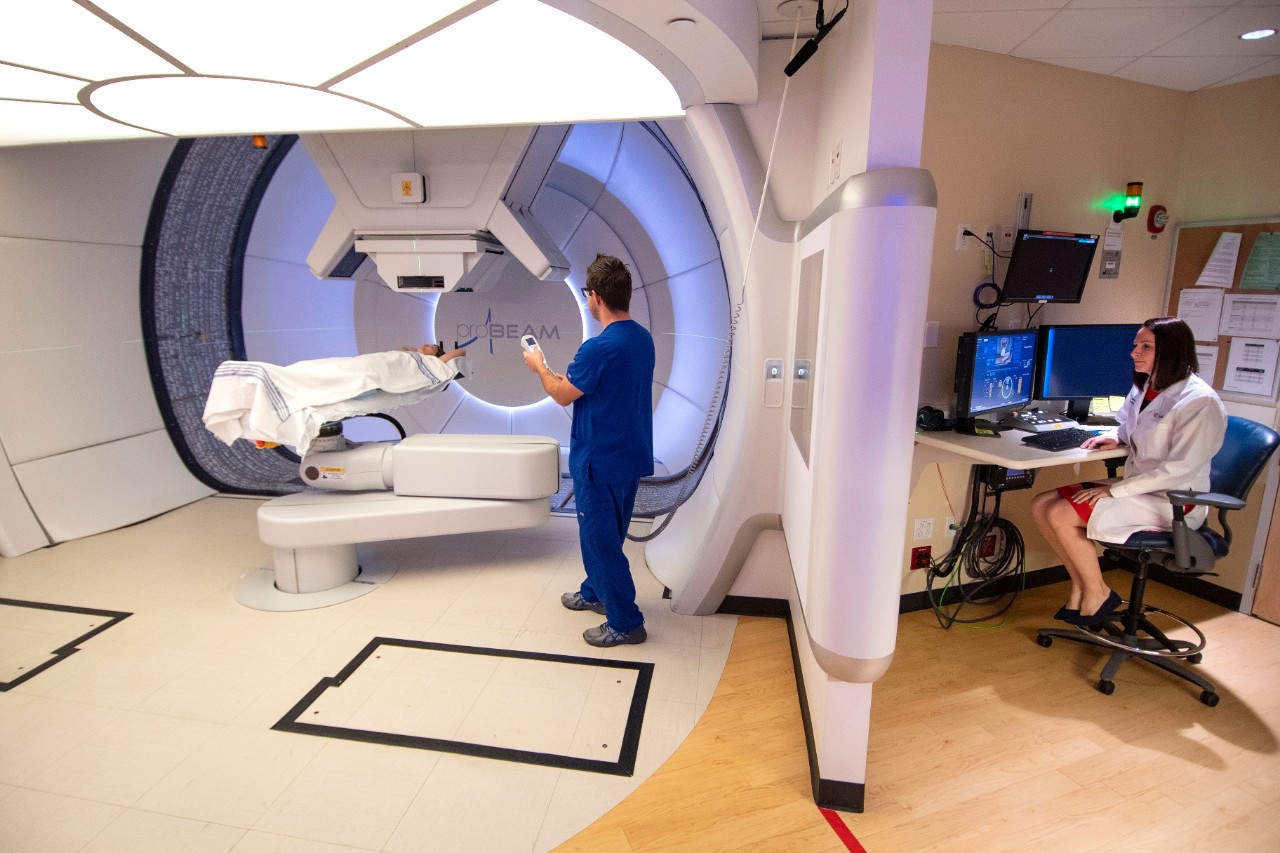
UC trial examines proton therapy in early breast cancer
Researchers at the University of Cincinnati are looking to enroll participants in a clinical trial, only being offered locally, to determine how the use of proton radiotherapy can be used for patients with early stage breast cancer.
This trial, led by Teresa Meier, MD, assistant professor of radiation oncology at the UC College of Medicine and a UC Health radiation oncologist, is being funded by grant money from Ride Cincinnati.
“This study will evaluate the effectiveness and cosmetic outcome of using pencil beam scanning proton therapy for partial breast irradiation in patients with early stage breast cancer,” she says. “Additionally, we’ll evaluate side effects patients experience as well as cancer recurrence rates.”

Teresa Meier says this investigator-initiated trial is unique nationally and will hopefully shed light on ways proton therapy can be used to further combat cancer and possibly spare patients from some of the associated side effects. Photo credit: Colleen Kelley
Proton radiotherapy is a form of radiation treatment used for certain types of cancers and lymphomas. A major advantage over traditional forms of radiotherapy is its ability to deliver radiation to a tumor with remarkable precision, sparing healthy tissues. The Cincinnati Children’s Hospital Medical Center/UC Health Proton Therapy Center is the only facility of its kind locally and only one of about 29 in the country. Innovative research like this is an example of one of the key platforms of UC’s strategic direction, Next Lives Here.
Meier says this investigator-initiated trial is unique nationally and will hopefully shed light on ways proton therapy can be used to further combat cancer and possibly spare patients from some of the associated side effects.
"Breast cancer will affect one in eight women during their lifetime, and nearly two-thirds of women are diagnosed with early stage disease, with most living many years beyond their diagnosis with the side effects of their cancer treatments,” Meier says. “For these patients, treatment has evolved from mastectomy to breast conservation therapy, which consists of a smaller surgery followed by daily radiation to the entire breast over four to six weeks. However, about one-third of women will experience significant skin toxicity—or redness of the skin which can be painful or tender—related to radiation.
“Additionally, the majority of cancer recurrences occur close to where the surgery took place, and proton therapy is able to target a specific area, sparing healthy breast tissue and eliminating unnecessary irradiation of nearby organs, like the heart and lungs. The beam is able to ‘paint’ the targeted area spot-by-spot.”

Teresa Meier, MD; photo credit: Colleen Kelley
Meier says for this small pilot study, researchers are looking for women, aged 50 and above, who have been diagnosed with early-stage breast cancer (stage 0 or IA)—a tumor that is less than 3 centimeters in size and has not spread to the lymph nodes.
“Patients will undergo standard of care—surgery followed by radiation, which will be proton radiotherapy,” she adds. “Partial breast radiation will be delivered twice a day, at least six hours apart, over five treatment days. We will provide this treatment to 21 patients with follow up over a period of three years.”
“We’re excited to offer this trial to patients and hope it provides insight into ways we can better and more effectively treat them for overall better quality of life,” she adds.
If you’re interested in participating in this trial, call 513-584-BEAM (2326) or toll free at 1-844-532-2326.
Related Stories
DAAPworks reveals 2025 Innovation Awards – discover the winning...
May 1, 2025
Visionary projects stole the show during DAAPworks 2025, from wayfinding technology for backcountry skiers to easy-to-use CPR training kits for children.
Machine learning brings new insights to cell’s role in...
April 30, 2025
Researchers led by the University of Cincinnati’s Anna Kruyer and the University of Houston’s Demetrio Labate have published research in the journal Science Advances applying object recognition technology to track changes in brain cell structure and provide new insights into how the brain responds to heroin use, withdrawal and relapse.
Most teens prescribed SSRIs did not have recommended follow-up...
April 30, 2025
The University of Cincinnati and Cincinnati Children's Hospital Medical Center's Martine Lamy commented to Medscape on new research that found fewer than half of the adolescents prescribed a selective serotonin reuptake inhibitor (SSRI) at two large Chicago pediatric primary care clinics had a follow-up visit within the recommended 6 weeks.
